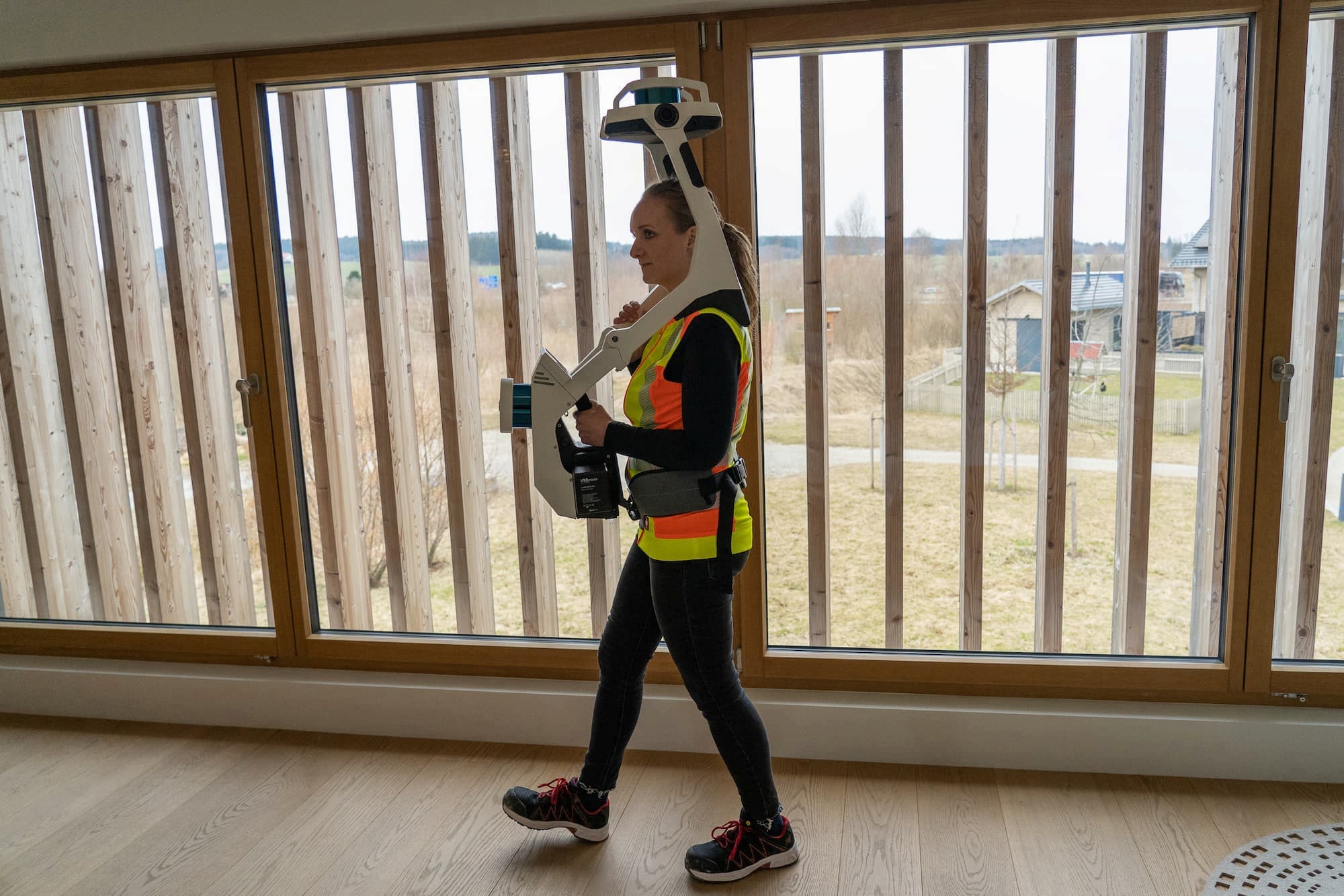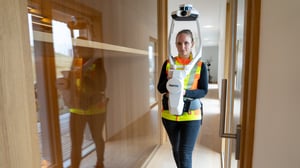Mobile mapping is reshaping the laser scanning and surveying industry, according to the latest State of the Mobile Mapping Report 2022, and in 2 years' time, almost two-thirds of survey professionals plan to own a mobile mapping system. With a global market estimated to be worth $127.3 billion by 2031 and a growth rate of over 5x in just 10 years, the opportunities for a career in mobile mapping is vast. This week, I'd like to dive deeper into this topic and share what it is you need to know to become a mobile mapper.
What is mobile mapping?
Mobile mapping is a form of geospatial surveying that provides the digital foundations for architects, designers, engineers, and construction professionals to design and build with confidence. Using a mobile device such as a car, UAV, or wearable tool fitted with the latest in laser measurement technology, mobile mapping augments existing survey tools to capture survey-grade data points in highly complex environments.
The data comes together to create a 3D point cloud or photorealistic representation of reality. Having true-to-life digital documentation of the project, AEC professionals can walk through the site virtually, make informed operational and design decisions, improve onsite productivity, and validate construction work against the plan to within millimeters.

What can you expect from a career in mobile mapping?
Mobile mapping is not your standard job. One day you could be capturing as-built data on a construction site; the next, you could be on an offshore oil rig collecting data to detect potential clashes for a new installation. Every day is different, and each site offers its own unique challenges, some of which you can plan for and others you will have to quickly adapt to whilst in the field. That’s what makes the job so interesting and exciting. Flexibility, communication, and teamwork are key.
Working in the field is only half the job. The other half involves processing, aligning, and geo-registering the data at the office or remotely and delivering it to the client online or to be used in downstream, 3rd-party applications. The combination of working across different locations in the field, then having the option of working back at the office or remotely is a great balance.
What do you like about mobile mapping?
Mobile mapping technology is redefining traditional survey workflows and has made a huge impact on the way we can collect and visualize data. I love getting my hands on the latest tech and tackling complex projects. The building and engineering industry is constantly evolving with new emerging trends; that’s what makes a career in mobile mapping so exciting, not just now but also for the future.

What markets can you work in?
Mobile mapping can be used across a wide range of markets, including:
- Industrial
- Manufacturing
- Public sector
- Education
- Healthcare
- Hospitality
- Retail
- Construction
- Real Estate and Facility Management
- Infrastructure, including railways, roads, bridges, and tunnels
- Mining
- Energy, including Oil, Gas, and offshore,
- Telecommunication
What skills do you need to become a mobile mapper?
- Attention to detail
Passionate about the finer detail and have a methodological and thorough approach.
- Analytical thinker
Lateral-thinker that can see the bigger picture and work to overcome challenges.
- Technologically savvy
Not afraid to learn and take advantage of new technology.
- Deadline driven
Ability to handle responsibility and work to tight deadlines.
- People person
Good communication skills to connect with stakeholders at different levels and work as a team.
- Willingness to travel
Client sites can be based around the region, so the ability to travel is essential.
What qualifications do you need?
Depending on your preference, there are various ways to become a mobile mapper, and entry requirements vary from region to region.
- Academic qualification
Gaining an academic qualification from a college or university is a common route into the industry and, on completion, will give you a recognized certificate. You can study subjects such as surveying, mapping, geospatial science, or related disciplines, including civil engineering, construction, geography, or geophysics.
- Professional qualification
Once you’ve qualified or gained the relevant work experience, you could achieve a professional qualification from your regional governing body. This will help demonstrate professional competence and open a range of career opportunities.
- Apprenticeship
Apprenticeships provide a hands-on practical route that allows you to train whilst on the job, gaining valuable experience and support from coworkers. Apprenticeships are paid and usually a set length of time ending in a recognized qualification, with the potential to progress through the company.
- Work experience
Work experience offers an introduction to the work environment, getting to know the ins and outs of what’s involved in being a mobile mapper. This is a good entry-level way to understand whether the mobile mapping is a career for you.
What's next?
If you’re interested in a rewarding and fulfilling career in surveying and mobile mapping, contact your college careers office, local survey company, or professional governing body.
We’re always looking for talented people too, so if you want to thrive in a forward-thinking technology-first environment, visit our careers page or sign up for our newsletter to stay in the know!

